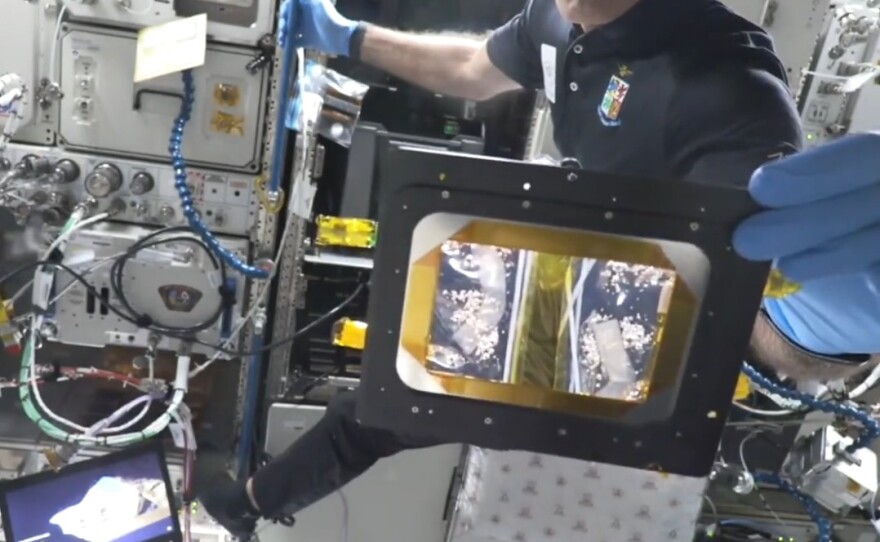Space is a stressful environment for living things, also in some ways that aren’t entirely obvious. The level of radiation and zero or micro gravity make us age very quickly.
“Time in space matters. If you spend 10 days in space, you’re fine. Twenty-one days, it’s a bit of a challenge,” said Catriona Jamieson, director of UC San Diego’s Sanford Stem Cell Institute.
In partnership with NASA she and fellow researchers have rocketed stem cells up to the International Space Station to see how they behave, and how they can affect our health.
What they learned is that stem cells become very stressed in space. They begin to divide and mutate, and that’s not good.
“If we reduce our stem cell component we have bone marrow failure and we can’t make a normal immune system. We lose an immune system to fight infection but we also lose an immune system that’s capable of fighting cancer,” Jamieson said.
Jamieson says space is a very valuable environment for biological research because it’s an accelerant. The acceleration of aging has been seen in stem cells and in people.
This was best seen in the case of two twins, both of whom are astronauts.
Scott Kelly was in space for about a year. Physical tests show he aged more quickly than his earthbound twin brother, Mark. Experiments by the Stem Cell Institute show Scott’s immune cells didn’t work as well as his brother’s and Scott showed greater inflammation.
Jamieson said experiments show space also accelerates cancer development.
“We found that cancer loves space,” she said. “Cancer really likes low-earth orbit or microgravity. It formed a fully three dimensional tumor organoid and it tripled in size in just 10 days, whether we were looking at colorectal cancer or leukemia. Loves space.”
Jamieson said the quick development of cancer in space makes it possible to study cancer growth in real time. And those handy results have led to the development of some effective drugs.
“The systems we’ve developed helped with early detection of cancer and interception. Very, very early intervention. So we can stop cancer in its tracks and prevent it from coming back. And that we’ve learned from space,” Jamieson said.
Researchers at the stem cell institute have shown, in space, that an experimental drug was able to block an enzyme that allowed cancer cells to grow quickly by cloning themselves. Jamieson said clinical trials for the drug they called rebecsinib have been approved by the Federal Drug Administration.






